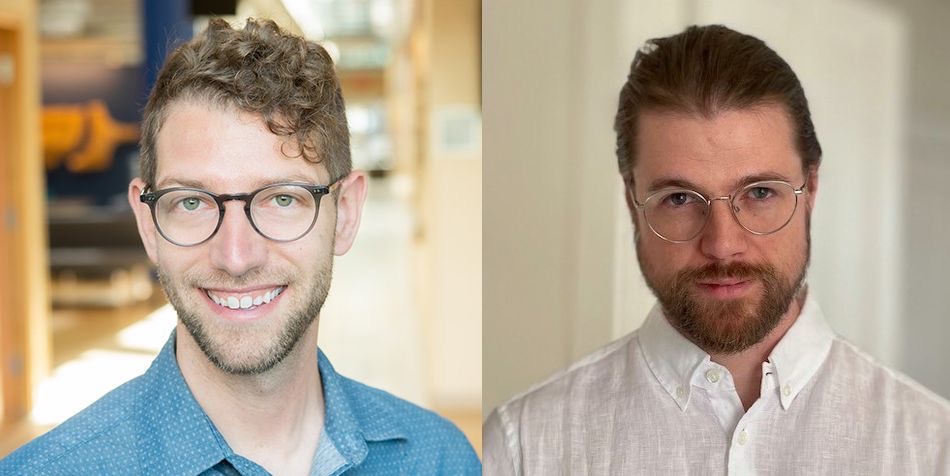Kevin De France (Chemical Engineering) and Alexander Tait (Electrical and Computer Engineering) are among five Queen’s researchers to receive research infrastructure funding from the Government of Canada through the Canada Foundation for Innovation and specifically the John R. Evans Leaders Fund (JELF).
The JELF helps universities more competitively recruit and retain outstanding researchers by providing funds needed to acquire the labs, equipment, and facilities.
Kevin De France’s project, "Development of sustainable cellulose- and protein-based building blocks for the fabrication of functional materials," will explore alternatives that could replace traditional plastic-based products. Plastics are generally produced from non-renewable petroleum-based sources, which lead to increased levels of waste and environmental pollution in their production and decomposition. His team will investigate the structure-property-function relationships between the natural building blocks of cellulose and protein, both abundant raw materials, and the materials fabricated from them. The successful completion of the project will result in the promotion of clean technology for various applications in fields spanning countless sectors that impact everyday life.

Alex Tait’s project, "Quantum internet to the home with cryogenic silicon photonics," will develop key building blocks from entangled photo light sources and single-photon detectors needed to access the more secure quantum internets. Quantum communication technologies promise a high value but also a high price point. Global investments in quantum technologies tend to focus on its applications and cyber security features for corporate and government networks, yet the general population would also benefit as our personal and financial data increasingly moves to the internet. A significant barrier for regular consumers to access these networks is the cost of needed hardware. Tait’s team will develop single-photon technologies that can be manufactured in existing silicon foundries, as opposed to using specialized semiconductor platforms. This innovation will make quantum internet products more accessible and affordable while presenting commercialization and export opportunities for Canada.
"Canada is world-renowned for our state-of-the-art institutions and talented researchers pushing the boundaries of knowledge," says The Honourable François-Philippe Champagne, Minister of Innovation, Science and Industry. "Through this Fund, our government is strengthening our leadership and competitive advantage by supporting Canadians to pursue discoveries, overcome challenges and innovate to make a more prosperous, equitable, and sustainable future for all."
"Cutting-edge research requires the right infrastructure and tools," says Nancy Ross, Vice-Principal (Research). "Thanks to the CFI, researchers at Queen’s can acquire the resources they need to accelerate their programs and fuel discovery and innovation that will have an impact on Canadians."
Other recipients of JELF funding at Queen’s include Fernanda De Felice (Biomedical and Molecular Sciences; Psychiatry), Vera Vine (Psychology), and Sunita Mathur (Rehabilitation Therapy). To learn more about the Canada Foundation for Innovation and other funded projects, please visit their website.
This article appeared first in its original form in the Queen’s Gazette.